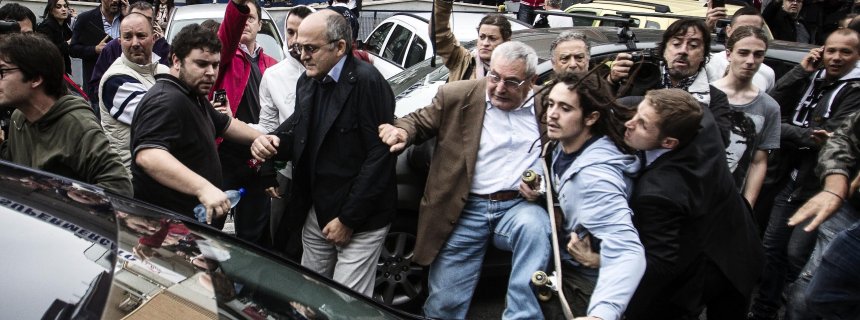Cindy Wooden
CNS
October 17, 2013
The traditionalist Society of St. Pius X offered to celebrate a funeral for convicted war criminal Erich Priebke after the Diocese of Rome said the service would be allowed only in a private home, but violent protests outside the chapel forced cancellation of the Mass.
Some 500 protesters had gathered Oct. 15 outside the SSPX district headquarters in Albano, south of Rome, when a hearse carrying Priebke’s body arrived. People shouted “murderer” and beat on the hearse.
Violence broke out after the arrival of a small group of people described by witnesses as neo-Nazis. Riot police intervened and two people were taken into custody, but the protesters remained and, according to Priebke’s lawyer, made it impossible for friends and relatives of the former Nazi SS officer to get to the chapel.
The lawyer, Paolo Giachini, told reporters outside the SSPX headquarters that the funeral Mass had not taken place, but that he had fulfilled his obligation to arrange a funeral. “Now it’s up to the authorities to decide what to do with the body,” since he was unable to find a city where Priebke could be buried.
Priebke died Oct. 11 at the age of 100. A former captain in the Nazi elite force known as the SS, he was convicted of carrying out a 1944 massacre of 335 Italian civilians in the Ardeatine Caves outside Rome. At the time of his death, he was serving his sentence under house arrest.
Priebke continued to claim he was only following orders when he took part in the Ardeatine Caves’ massacre and, shortly before he died, he affirmed his belief that the Holocaust was an invention.
The Diocese of Rome had refused Giachini’s request to allow a funeral to take place in a church or chapel.
In a statement issued Oct. 14, the diocese said, “Considering all the circumstances of the case, the ecclesial authorities believed that prayer for the deceased and entrusting him to the mercy of God — the aims of a religious funeral — should take place in the strictest privacy.”

